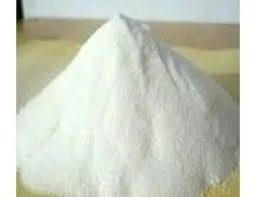
Aug . 20, 2024 19:32 Back to list
Exploring the Applications and Benefits of Hydroxyethyl Cellulose in Various Industries
The Use of Hydroxyethyl Cellulose Applications and Benefits
Hydroxyethyl cellulose (HEC) is a non-ionic, water-soluble polymer derived from cellulose, a naturally occurring biopolymer. It has gained considerable attention in various industries due to its unique properties, such as thickening, stabilizing, and film-forming capabilities. This article will explore the diverse applications of hydroxyethyl cellulose, its benefits, and its significance in different sectors.
Applications of Hydroxyethyl Cellulose
One of the most prominent uses of hydroxyethyl cellulose is in the cosmetic and personal care industry. It is commonly found in shampoos, lotions, creams, and gels. Due to its thickening properties, HEC enhances the viscosity of formulations, providing a desirable texture and improving product stability. Additionally, HEC acts as a moisturizing agent, helping to retain water in cosmetic products, which contributes to their efficacy and consumer satisfaction.
In the pharmaceutical sector, hydroxyethyl cellulose is valued for its role as a binder and thickener in drug formulations. It helps improve the flow properties of powders and granules, facilitating their processing in tablet production. Furthermore, HEC can be used in controlled release formulations, where it controls the release rate of active ingredients, leading to enhanced therapeutic effects and patient compliance.
The construction industry has also found utility in hydroxyethyl cellulose. It is used as a thickener and water-retaining agent in cement and mortar formulations. By improving workability, HEC allows for easier application of these materials while also preventing them from drying out too quickly, which can lead to cracks and a reduction in structural integrity. Additionally, its ability to enhance the adhesion of these materials makes HEC an invaluable component in construction projects.
In the food industry, hydroxyethyl cellulose serves as a food additive that acts as a thickener and stabilizer, ensuring the desired consistency and texture of various food products. It is commonly used in sauces, dressings, and dairy products, where it helps improve mouthfeel and stability. Furthermore, HEC is recognized for its ability to form gels, making it a popular choice in low-fat and reduced-calorie food formulations.
use of hydroxyethyl cellulose

Benefits of Hydroxyethyl Cellulose
The use of hydroxyethyl cellulose offers numerous benefits across its applications. One of its key advantages is its safety profile; HEC is regarded as non-toxic and safe for use in various products, including those intended for human consumption. This makes it a suitable option for sensitive applications in cosmetics and food products.
Moreover, HEC is versatile and can be modified to suit specific needs, allowing for tailor-made solutions in different formulations. Its ability to dissolve in cold water without requiring heat makes it user-friendly and adaptable for various processing conditions.
Another significant benefit of hydroxyethyl cellulose is its environmental compatibility. Being derived from renewable resources, HEC contributes to sustainable practices within industries. Its biodegradability also aligns with the growing demand for eco-friendly products, reflecting a shift toward responsible manufacturing practices.
Conclusion
In conclusion, hydroxyethyl cellulose is a multifunctional polymer with a wide range of applications across several industries, including cosmetics, pharmaceuticals, construction, and food. Its unique properties—such as thickening, stabilizing, and gel-forming abilities—along with its safety, versatility, and environmental friendliness, make it an indispensable ingredient in modern formulations. As industries continue to evolve and prioritize sustainability, the relevance of hydroxyethyl cellulose is likely to grow, paving the way for innovative applications and solutions.
-
Versatile Hpmc Uses in Different Industries
NewsJun.19,2025
-
Redispersible Powder's Role in Enhancing Durability of Construction Products
NewsJun.19,2025
-
Hydroxyethyl Cellulose Applications Driving Green Industrial Processes
NewsJun.19,2025
-
Exploring Different Redispersible Polymer Powder
NewsJun.19,2025
-
Choosing the Right Mortar Bonding Agent
NewsJun.19,2025
-
Applications and Significance of China Hpmc in Modern Industries
NewsJun.19,2025







